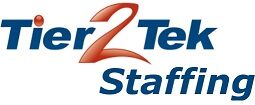NET Developer Interview Questions with Answers

As a staffing agency specializing in technical recruitment, we understand the importance of assessing .NET developer candidates thoroughly. Below, we present a curated set of technical interview questions designed to help hiring managers and job seekers gauge and demonstrate expertise in .NET development. These questions cover a range of topics, including fundamental concepts, coding practices, and advanced .NET features, ensuring a comprehensive evaluation of the candidate’s capabilities.
What is the CLR in .NET?
The Common Language Runtime (CLR) is the execution environment in .NET. It manages the execution of .NET programs, providing services such as memory management, type safety, exception handling, garbage collection, and thread management.
Explain the concept of managed code.
Managed code is executed by the CLR and benefits from features like type checking, garbage collection, and security. This code is written in .NET-supported languages and directly managed by the runtime environment.
What is the difference between managed and unmanaged code?
Managed code is executed under the control of the CLR, which handles various operations like memory management and security. Unmanaged code is executed directly by the operating system outside the CLR environment and requires explicit handling of memory and system resources.
Describe the function of the .NET Framework Class Library.
The Framework Class Library (FCL) provides a comprehensive collection of reusable classes, interfaces, and value types that expediently support developers in building robust and reliable applications using .NET.
How does garbage collection work in .NET?
Garbage collection in .NET automatically releases unused memory to manage the allocation and de-allocation of memory automatically, enhancing system performance and preventing memory leaks.
What are assemblies in .NET?
Assemblies are building blocks of .NET applications. They are compiled code libraries used for deployment, versioning, and security. Assemblies can be executable (.exe) files or libraries (.dll) files.
Can you explain the concept of strong naming?
Strong naming involves giving an assembly a unique name by combining its name with its version number and a public key. This ensures the security and version control of the assembly.
What are the different types of constructors in C#?
C# supports several types of constructors, including static constructors, instance constructors, and private constructors, each serving different initialization purposes.
What is the difference between Finalize and Dispose methods?
Finalize is used for implicit cleanup when the garbage collector reclaims an object, while Dispose is used for explicit resource management by implementing the IDisposable interface to release unmanaged resources manually.
Explain the use of the “using” statement in C#.
The “using” statement ensures the correct use of IDisposable objects, automatically calling the Dispose method to free up resources once the block of code is executed.
What is LINQ and why is it useful?
Language Integrated Query (LINQ) allows querying of data from different sources (like databases, XML documents, web services) in a consistent manner using C#. It simplifies data manipulation and querying operations.
How do events work in C#?
Events in C# provide a way for a class to notify other classes or objects when something of interest occurs. The class that sends (or raises) the event is called the publisher and the classes that receive (or handle) the event are called subscribers.
What is an interface and how is it used in C#?
An interface defines a contract that can be implemented by classes and structs. Interfaces specify a group of related methods and properties that a class or a struct must implement.
Describe exception handling in .NET.
Exception handling in .NET is managed through the use of try, catch, and finally blocks. These blocks enable developers to try actions that may fail, catch exceptions that arise, and clean up resources afterward.
What is the difference between a class and a struct in C#?
Classes are reference types and are stored on the heap, while structs are value types and are stored on the stack. This affects how they are handled in memory and their performance.
Explain polymorphism in C#.
Polymorphism allows methods to have the same name but behave differently based on the objects that are being acted upon. This is achieved through overriding or overloading methods.
What are delegates in .NET?
Delegates are types that represent references to methods with a specific function signature in .NET. They are similar to function pointers in C++ but are type-safe.
What is the Entity Framework in .NET?
Entity Framework is an ORM (Object-Relational Mapping) framework that enables developers to work with databases using .NET objects, eliminating the need for most of the data-access code that developers usually need to write.
How do you implement inheritance in C#?
Inheritance in C# is implemented by creating a base class that is inherited by one or more derived classes. The derived classes can extend and specialize the base class.
What are generics in C#?
Generics allow the creation of classes, methods, events, and delegates with a placeholder for the type they operate on. This provides better performance and stronger type checking.
How can you manage state in an ASP.NET application?
State management in an ASP.NET application can be managed using various methods like ViewState, SessionState, ApplicationState, CookieState, and Database storage, depending on the scope and duration of the data storage required.
What are the key features of WPF (Windows Presentation Foundation)?
WPF provides a unified framework for building rich client applications with visually stunning user interfaces, using a mix of markup language (XAML) and managed code.
Explain the concept of data binding in WPF.
Data binding in WPF links UI elements to data sources, allowing for synchronization of values and reducing the need to write boilerplate code for UI updates.
Common Technologies Used by .NET Developers

.NET developers typically use a range of technologies and tools to build applications effectively. Here are some of the most common:
- .NET Framework & .NET Core: Essential for creating Windows and cross-platform applications.
- C#: The primary programming language for .NET developers.
- ASP.NET: A framework for building web applications and services.
- Entity Framework: An ORM (Object-Relational Mapping) tool used for data access.
- LINQ (Language Integrated Query): Enables querying against databases, XML, and more using C#.
- MVC (Model-View-Controller): A design pattern used for developing scalable and maintainable web applications.
- Visual Studio: The primary IDE (Integrated Development Environment) for .NET development.
- SQL Server: A popular database management system used with .NET applications.
- Xamarin: For building mobile applications that can run on various platforms using .NET.
- Blazor: A framework to build interactive client-side web UIs with .NET.
- WPF (Windows Presentation Foundation): For creating rich desktop client applications.
- SignalR: A library for adding real-time web functionalities to applications.
Key Expertise Areas for .NET Developers
.NET developers typically possess expertise across a diverse set of areas to effectively build and maintain robust applications. Some common expertise areas include:
- Object-Oriented Programming (OOP): Proficiency in OOP concepts is fundamental for .NET developers to create modular and scalable software.
- Web Development: Knowledge of ASP.NET for building dynamic websites and web applications is crucial.
- Desktop and Mobile Development: Skills in creating Windows desktop applications using WPF and mobile applications using Xamarin.
- Database Management: Expertise in SQL Server or other databases to handle data operations, storage, and security.
- API Development: Ability to create and integrate APIs using ASP.NET Web API for various services and applications.
- Unit Testing: Proficiency in testing frameworks like NUnit or xUnit to ensure code reliability and performance.
- Version Control: Familiarity with version control systems like Git to manage changes in the development process.
- Client-side technology: Knowledge of HTML, CSS, JavaScript, and front-end frameworks like Angular or React can be essential.
- Cloud Services: Experience with cloud platforms such as Azure for deploying and managing applications.
- Security Practices: Understanding of security measures and best practices to protect applications from threats and vulnerabilities.
Need to Hire .NET Developers?

At Tier2Tek Staffing, we specialize in quickly connecting companies with top-tier .NET developers. Our expertise ensures that you find the right expertise promptly and efficiently.
Why Choose Us?
- Sourcing Speed: We rapidly source .NET developers, minimizing your hiring downtime.
- Communication with Clients: Expect transparent and continuous communication throughout the hiring process.
- Quality Candidates: We provide access to pre-vetted .NET developers who meet your specific project needs.
- Innovative Sourcing Strategies: Utilizing the latest techniques and tools, we find hidden talent in the .NET development space.
